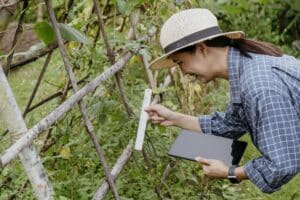Becoming a Board-Certified Behavior Analyst (BCBA) requires meeting rigorous academic, fieldwork, and supervision standards set by the Behavior Analyst Certification Board (BACB). Supervision is a critical component of BCBA certification, as it ensures that candidates gain the necessary practical experience under the guidance of a qualified supervisor. Understanding the BCBA fieldwork requirements is essential for successfully navigating the certification process. This comprehensive guide outlines the BCBA supervision requirements, including the types of supervision, acceptable activities, and best practices for meeting these standards.
Why is Supervision Important?
Supervision in Applied Behavior Analysis (ABA) provides BCBA candidates with hands-on experience, feedback, and mentorship. It bridges the gap between theoretical knowledge and real-world application, preparing candidates to deliver effective behavior-analytic services once certified. Proper supervision ensures that future BCBAs are competent, ethical, and capable of positively impacting the individuals and organizations they serve.
Success Stories
“Move Up ABA has been a lifeline for our family. Before starting therapy, our son struggled with daily routines and communication. Now, he’s more independent and even initiated a conversation with a classmate for the first time! The progress we’ve seen in just six months is truly remarkable.”
- Emily R., Silver Spring, Accountant
“As a single dad, I was overwhelmed trying to manage my child’s behavior. The Move Up ABA team not only provided amazing support for my little girl but also taught me practical strategies to use at home. Their in-home sessions fit perfectly with our busy schedule. I’m so grateful for their patience and expertise.”
- Michael T., Rockville, Middle School Teacher
“We were hesitant about starting ABA therapy, but Move Up ABA’s approach put us at ease from day one. Our twins have made incredible strides in their social skills and self-regulation. The therapists are like extended family now, and we couldn’t be happier with our decision to work with them.”
- Aisha and James L., Simpson, Police Officers
Ready to start your child's journey to success? Schedule a free consultation today! 📞 Call (410) 497-8865.
BCBA Supervision Requirements Overview
The BACB mandates specific BCBA fieldwork requirements as part of the certification process. Candidates must complete a designated number of supervised fieldwork hours, which must be documented, verified, and conducted under the supervision of a qualified professional who meets BACB standards.
Types of Supervised Fieldwork
BCBA candidates can choose between two types of supervised fieldwork:

Supervised Fieldwork:
- Requires 2,000 hours of fieldwork experience.
- Candidates must receive supervision for at least 5% of the total hours they work each month.
Concentrated Supervised Fieldwork:
- Requires 1,500 hours of fieldwork experience.
- Candidates must receive supervision for at least 10% of the total hours they work each month.
The primary difference between these two types is the intensity of supervision. Concentrated supervised fieldwork requires fewer total hours, but a higher percentage must be supervised.
Supervision Contacts and Frequency
Supervision Contacts: Candidates must have at least two face-to-face supervision contacts with their supervisor during each month of supervision.
Group Supervision: Up to half of the supervision contacts can be conducted in a small group setting with no more than 10 participants.
Individual Supervision: At least one supervision contact must be conducted individually, one-on-one with the supervisor.
Acceptable Supervision Activities
Meeting the BCBA fieldwork requirements involves engaging in activities directly related to the practice of behavior analysis. Acceptable activities include:
- Conducting behavior assessments (e.g., Functional Behavior Assessments).
- Developing and revising behavior intervention plans.
- Implementing behavior-analytic procedures and interventions.
- Data collection and analysis.
- Training and supervising other behavior technicians.
- Engaging in behavior-analytic research.
- Participating in professional development activities, such as attending workshops or seminars.
Activities That Do Not Count Toward Supervised Fieldwork

Certain activities do not count toward the required supervised fieldwork hours, including:
- Non-behavior-analytic administrative activities.
- Clerical work and other tasks that do not directly involve the practice of behavior analysis.
- Attending general meetings that do not involve direct behavior-analytic content.
Qualifications of Supervisors
Supervisors play a crucial role in the development of BCBA candidates. To ensure the quality of supervision, the BACB has established specific qualifications that supervisors must meet:
Certification Requirements: Supervisors must hold an active BCBA or BCBA-D (Doctoral-level BCBA) certification in good standing.
Supervision Training: Supervisors must complete an 8-hour supervision training course and ongoing supervision continuing education units (CEUs).
Experience Requirements: Supervisors must have at least one year of post-certification experience as a BCBA or BCBA-D.
Ethical Obligations: Supervisors must adhere to the BACB’s Professional and Ethical Compliance Code for Behavior Analysts and must not have any active disciplinary actions against their certification.
Documentation and Verification
Proper documentation is essential for verifying that all BCBA fieldwork requirements have been met. Candidates and supervisors must maintain detailed records of supervision activities, including:
- Supervision Agreements are written agreements outlining the supervisor and supervisee’s responsibilities. They must be signed before supervision begins.
- Monthly Fieldwork Verification Forms: Document the hours worked, the number of supervision contacts, and the activities performed each month.
- Final Fieldwork Verification Form: A comprehensive record of all supervised fieldwork hours, signed by the supervisor and supervisee upon completion.
These forms must be accurately completed and submitted to the BACB when applying for the BCBA certification exam.
Best Practices for BCBA Supervision
To make the most of the supervision experience and fulfill the BCBA fieldwork requirements, both supervisors and supervisees should adhere to the following best practices:
For Supervisors
Provide Regular Feedback: Offer constructive feedback during and after supervision sessions to help the candidate improve their skills.
Create a Structured Learning Plan: Develop a plan that outlines the competencies to be developed and the activities that will be conducted to achieve these goals.
Model Ethical Practice: Demonstrate and reinforce ethical behavior and decision-making in all aspects of supervision and practice.
Encourage Professional Development: Support the candidate’s participation in professional development activities and ongoing education.
For Supervisees
Be Proactive: Take an active role in your supervision by setting goals, asking questions, and seeking feedback.
Document Everything: Keep meticulous records of all supervised fieldwork activities, hours worked, and supervision contacts.
Reflect on Experiences: Regularly reflect on your experiences and how they contribute to your growth as a future BCBA.
Maintain Professionalism: Always adhere to the BACB’s ethical guidelines and strive to maintain a high level of professionalism in all interactions.
Common Challenges in Meeting BCBA Fieldwork Requirements

Meeting the BCBA fieldwork requirements can be challenging, particularly in finding the right supervisor and managing the documentation process. Here are some common challenges and how to address them:
- Finding a Qualified Supervisor: Look for supervisors with experience in the areas you wish to develop. Networking at ABA conferences and joining professional organizations can help connect you with potential supervisors.
- Balancing Work and Supervision: Manage your time effectively by creating a detailed schedule that includes supervision, study, and fieldwork hours.
- Maintaining Accurate Documentation: Use digital tools or apps designed for fieldwork tracking to keep all your records organized and easily accessible.
Conclusion
Meeting the BCBA fieldwork requirements and supervision standards is a critical step in the certification process. It provides valuable hands-on experience and ensures that candidates are well-prepared to provide high-quality behavior-analytic services. By understanding these requirements, selecting qualified supervisors, and adhering to best practices, you can successfully navigate this process and move closer to achieving your BCBA certification.





